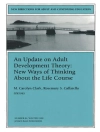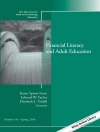This, the first publication to collate a broad international perspective on the pedagogical value of GIS technology in classrooms, offers an unprecedented range of expert views on the subject. Geographic Information Systems (GISs) are now ubiquitous and relatively inexpensive. They have revolutionized the way people explore and understand the world around them. The capability they confer allows us to capture, manage, analyze, and display geographic data in ways that were undreamt of a generation ago. GIS has enabled users to make decisions and solve problems as diverse as designing bus routes, locating new businesses, responding to emergencies, and researching climate change. GIS is also having a major impact in the classroom. Students and teachers around the world are using this significant emerging technology in the secondary school classroom to study social and scientific concepts and processes, to broaden their technical skills, and to engage in problem solving and decision making about local and global issues.
International Perspectives on Teaching and Learning with GIS in Secondary Schools brings together authors from 34 countries who profile the current status of GIS in secondary school teaching and learning in their country. Each chapter includes a summary of the country’s educational context, a case study illustrating how GIS is used in secondary schooling, and an assessment of the opportunities and challenges in teaching and learning with GIS now and in the future. The book demonstrates that GIS is not only a technological tool to be used in the classroom, but also a catalyst for motivation, encouragement, and cooperation in understanding and solving global problems.
The most up to date and extensive survey of GIS in the secondary education landscape, covering both principles and practice.
Professor David Maguire, Pro-Vice-Chancellor, Birmingham City University, UK
International Perspectives on Teaching and Learning With GIS in Secondary Schools is a highly relevant, critically important, reflective contribution to the literature, providing strong arguments supporting the inclusion for spatial studies for all in secondary school education.
Karl Donert, President, EUROGEO
This is an invaluable and inspirational examination of innovation in geospatial technologies in secondary schools around the world. Each chapter contains practical models for how to integrate powerful tools for spatial analysis into a range of subjects. It will be useful to classroom teachers and administrators seeking pathways to implementation and teacher educators considering how to prepare the next generation to use geospatial technologies.
Sarah Witham Bednarz, Department of Geography, Texas A&M University, College Station, TX, USA
Table of Content
About the Editors.- List of Contributors.- Acknowledgements.- Foreword.- List of Illustrations.-The World at their Fingertips: A New Age for Spatial Thinking.- Australia: Inquiry Learning with GIS to Simulate Coastal Storm Inundation.- Austria: Links between Research Institutions and Secondary Schools for Geoinformation Research and Practice.- Canada: Teaching Geography and the Social Sciences through Geotechnology across a Decentralized Curriculum Landscape.- Chile: GIS and the Reduction of the Digital Divide in the Pan-American World.- China: Teacher Preparation for GIS in the National Geography Curriculum.- Colombia: Development of a Prototype Web-based GIS Application for Teaching Geography.- Denmark: Early Adoption and Continued Progress of GIS for Education.- Dominican Republic: Prospects for the Incorporation of GIS into the School Curriculum.- Finland: Diffusion of GIS in Schools from Local Innovations to the Implementation of a National Curriculum.- France: Dogmatic Innovations, Innovative Teachers, and Parallel Experimentations.- Germany: Diverse GIS Implementations within a Diverse Educational Landscape.- Ghana: Prospects for Secondary School GIS Education in a Developing Country.- Hungary: GIS in Natural Science Teacher Training .- India: Localized Introduction of GIS in Elite Urban Private Schools and Prospects for Diffusion.- Japan: GIS-enabled Field Research and a Cellular Phone GIS Application in Secondary Schools.- Lebanon: A Personal Journey from Professional Development to GIS Implementation in an English Language Classroom.- Malta: GIS and Geography Teaching in the Context of Educational Reform.- The Netherlands: Introduction and Diffusion of GIS for Geography Education, 1980s to the Present.- New Zealand: Pioneer Teachers and the Implementation of GIS in Schools.- Norway: National Curriculum Mandates and the Promise of Web-based GIS Applications.- Portugal: Experimental Science Learning, Web GIS, and the Con TIG project.- Rwanda : Socioeconomic Transformation to a Knowledge-based Economy through the Integration of GIS in Secondary Schools.- Singapore: The Information Technology Masterplan and the Expansion of GIS for Geography Education.- South Africa: Teaching Geography with GIS across Diverse Technological Contexts.- South Korea: GIS Implementation Profiles among Secondary Geography Teachers.- Spain: Institutional Initiatives for Improving Geography Teaching with GIS.- Switzerland: Introducing Geo-Sensor Technologies and Cartographic Concepts through the Map Your World Project.- Taiwan: The Seed of GIS Falls Onto Good Ground.- Turkey: GIS for Teachers and the Advancement of GIS in Geography Education.- Uganda: Educational Reform, the Rural-Urban Digital Divide, and the Prospects for GIS in Schools.- United Arab Emirates: Building Awareness of GIS in Education through Government and University Outreach.- United Kingdom: Realizing the Potential for GIS in the School Geography Curriculum.- United States of America: Rugged Terrain and Fertile Ground for GIS in Secondary Schools.- Synthesis: The Future Landscape of GIS in Secondary Education.- Bibliography.- Index.












